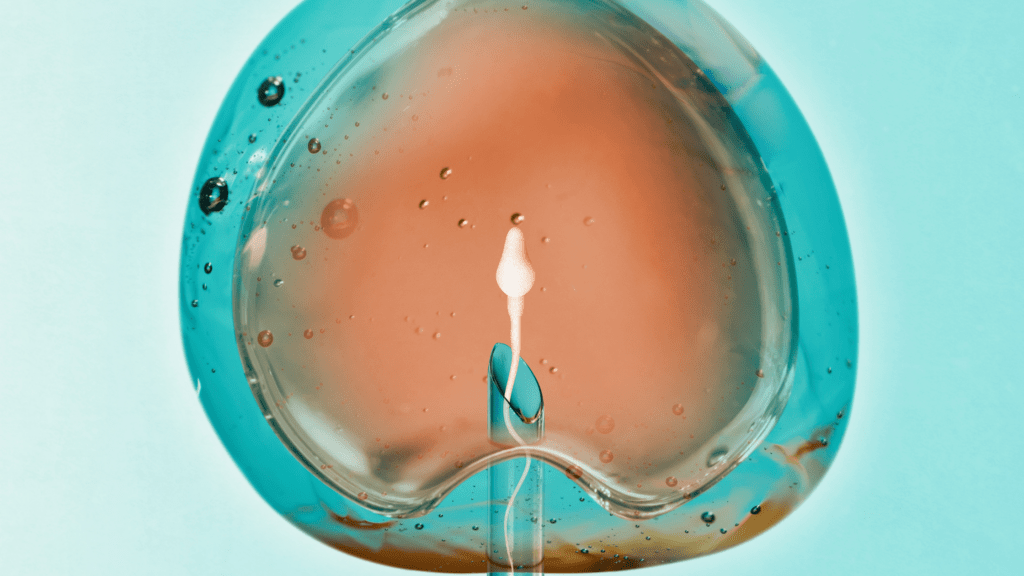What is ICSI?

Intracytoplasmic Sperm Injection (ICSI) is the process of taking a single sperm and injecting it directly into an egg. This egg is then transferred into the womb through IVF treatment.
Who is ICSI suitable for?
ICSI may be recommended for a number of reasons as an alternative to conventional IVF. These include male infertility, unsuccessful IVF treatment and if you are using frozen eggs.
Male infertility
Most male infertility is linked to sperm quality and health. An intracytoplasmic sperm injection (ICSI) is often recommended by fertility specialists if you are struggling with sperm-related problems, such as poor motility (poor movement), poor morphology (abnormally shaped), and low sperm count.
If you have sperm with poor motility and poor morphology, ICSI can be beneficial because the sperm can struggle to reach the egg naturally or in laboratory conditions. Using ICSI, the sperm is injected directly into the egg, mitigating the need for the sperm to reach the egg independently.
Low sperm count and vasectomy
ICSI is used in instances where there is a low sperm count, or there are high levels of antibodies in the semen, which also affects the sperm count. A low sperm count can mean that conventional IVF is not successful.
If you have had a vasectomy and the sperm has been collected through an epididymis or directly from the testicles, then ICSI is often used.
Erection and ejaculation
If the male partner struggles with maintaining erections, ICSI treatment can be used by collecting the sperm directly from the testicles through an epididymis. This could be due to health, injury and other disorders, such as retrograde ejaculation or a blockage in the reproductive tract.
Egg freezing
The use of more mature, previously frozen eggs or if eggs being used are from someone over the age of 35, then ICSI might be recommended by your fertility specialist.
Unsuccessful IVF treatment
If you have been attempting to get pregnant by conventional IVF treatments, yet they have been unsuccessful, ICSI might give you a better chance of getting a successfully fertilised egg.
Understand more about ICSI and when it should be used: Watch Now
What is the ICSI procedure?
Below is an overview of what you can expect from the ICSI procedure. Parts of the procedure may alter depending on whether you are using donor sperm and eggs and frozen eggs. You can discuss this further with your fertility specialists.
1- Ovarian stimulation
The female partner will take fertility drugs to stimulate the ovaries to produce multiple mature eggs.
2- Egg collection
These eggs are retrieved by a thin needle through the wall of the ovaries. This will take place under anaesthetic to reduce pain.
3- Sperm sample
A sperm specimen is taken on the same day as the egg retrieval or frozen sperm can be used. The male providing the sperm must not have sex or masturbate three days prior to the collection of the sperm sample.
Surgical sperm retrieval may be used for males who have difficulty with ejaculations or a lack of sperm cells in the semen (azoospermia).
4- Egg insemination
A single sperm is injected directly into an egg using a thin needle.
5- Embryo culture
The laboratory observes the fertilised eggs for around five days in the fertility clinic. They are incubated so that they develop. If the fertilised eggs begin dividing they are viable for embryo transfer.
Some of the eggs will not be viable for embryo transfer as they will not survive the injection process.
6- Embryo transfer
The doctor or nurse transfers the fertilised eggs (embryos) into the uterus through embryo transfer.
Embryos that are not transferred are frozen for future cycles.
7- Pregnancy test
Two weeks after the embryo transfer has taken place. The female will be able to take a pregnancy test to determine whether the ICSI treatment has been successful.

How is ICSI different from IVF?
Both ICSI and IVF are types of assisted reproductive technology (ART). Some stages of ICSI are similar to conventional IVF treatment. The main difference between conventional IVF and ICSI, is the way that fertilisation takes place. With conventional IVF, thousands of swimming sperm are placed into a laboratory dish next to the egg. Fertilisation takes place when one of the sperm penetrates the egg.
With ICSI, a single sperm is selected and injected directly into the egg.
Is ICSI more successful than IVF?
The chances of having a successful pregnancy are the same with ICSI and IVF. Like with traditional IVF, there are no guarantees that using ICSI will result in successful fertilisation or birth. Although some clinics routinely use ICSI in most patients, it has not been shown to increase success rates in couples where male factor infertility isn’t the apparent cause of their inability to conceive.
Moreover, if IVF treatments have been unsuccessful in the past due to immature eggs, then ICSI will not likely give you increased results.
What are the risks associated with ICSI?
The risk of congenital disabilities when children are conceived through IVF or ICSI, is around 3% higher than through natural conception. Infertile men may be tested for cystic fibrosis genes and chromosome abnormalities. Fertility specialists will be able to assess with genetic testing and whether a male has cystic fibrosis mutations before going forward with ICSI treatment.
During or after the use of ICSI, some damage to the eggs may occur, embryos may not form or may stop growing, causing an increased risk of miscarriage.
The transfer of multiple fertilised eggs can result in a multiple pregnancy, which can cause premature birth and other complications.
Why does ICSI cost more than traditional IVF?
ICSI treatment costs in excess of £5000 for a single cycle. The fee will vary based on clinic, and whose sperm and eggs are being used.
Your consultant will talk to you about the type of ART (assisted reproductive technologies) most suited to your diagnosis and your history and talk you through the benefits and risks involved in any proposed procedures.

Getting help and support
If you have more questions about ICSI or getting support with your fertility journey in general, then join The IVFN monthly events, Safe Space’s and Ask The Experts sessions, to help you make informed fertility choices.
References:
https://mft.nhs.uk/saint-marys/services/gynaecology/reproductive-medicine/intra-cytoplasmic-sperm-injection-icsi/
https://my.clevelandclinic.org/health/treatments/22463-intracytoplasmic-sperm-injection